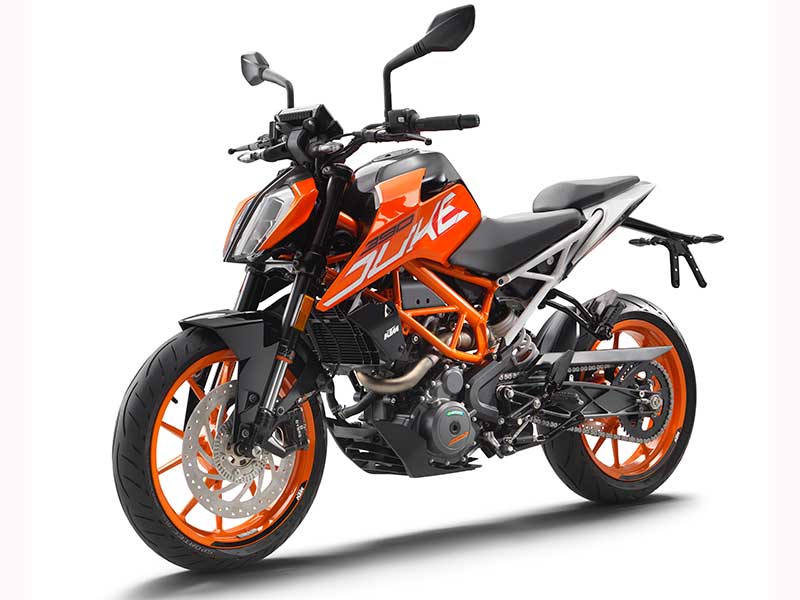
UPDATE: A petition has been created on the White House website, and if it gets 100,000 signatures within 30 days (February 22, 2017), it will earn an official response by the government. You can sign the petition here.
What do motorcycles and beef have to do with each other? That’s what the American Motorcyclist Association would like to know, as it speaks out against a proposed 100 percent tariff on European-made motorcycles with a engine size between 51cc and 500cc. The tariff is part of a trade dispute over, of all things, the use of hormones in U.S. beef.
The crazy part is, this isn’t the first time this has happened. The same government agency, the Office of the U.S. Trade Representative (USTR), tried the same tactic in 2008, but withdrew the plan due to public outcry. Instead, they raised the tariff on a variety of European food products.
The whole issue stems from the fact that the EU bans the import of beef or beef products that have been treated with any of six different growth-promotion hormones: estradiol 17-b (a steroid, an estrogen and the primary female sex hormone), testosterone, progesterone (another steroid hormone), zeranol (a synthetic estrogen), trenbolone acetate and melengestrol acetate (both are anabolic steroids). This creates a problem for the U.S. beef industry, which relies heavily on growth hormones to produce lots of inexpensive meat, which in turn satisfies American consumers’ appetite for Big Macs.
In order to offset the monetary losses being suffered by U.S. producers, the USTR has proposed a list of new products on which a 100-percent tariff could be imposed. It’s a long list of mostly food products…until you scroll all the way to the bottom, where hair clippers (both for livestock and human use) and—you guessed it—motorcycles can be found.
The AMA sent out a press release condemning the proposed tariff, “Because trade disputes residing within the boundaries of the agricultural industry should not be solved with trade sanctions levied against non-agricultural products.”
“There is no logical link between motorcycles and beef,” said Wayne Allard, AMA Vice President of Government Relations. “It is absurd to even consider such a move.”
The Office of the U.S. Trade Representative is responsible for developing and coordinating U.S. international trade, commodity and direct investment policy and overseeing negotiations with other countries. The head of USTR is the U.S. Trade Representative, a Cabinet member who serves as the president’s principal trade adviser, negotiator, and spokesperson on trade issues.
The press release contends that “if the agency enacts this motorcycle tariff, serious and potentially irreversible harm will be done to American small- and medium-sized business owners selling the vehicles and to American families who buy these motorcycles for commuting and outdoor recreation.”
“Should the availability of motorcycles be hindered by these unjustified trade sanctions, dealerships may close, leaving countless Americans without jobs,” Allard said. “The negative effects of the proposed sanctions will not only harm the motorcycle sales industry, but will spread through the aftermarket equipment sector, recreation equipment sales, the sports entertainment industry and further down the line.”
Affected manufacturers include Aprilia, Beta, BMW, Ducati, Fantic, Gas Gas, Husqvarna, KTM, Montesa, Piaggio, Scorpa, Sherco, TM and Vespa.
You can read the proposal here, and if you want to make your views known, submit a comment.
The AMA has also set up a special page where they will help you voice your opinion.








As the USA becomes more protectionist- and there’s little doubt that will happen, it will make buying motorcycles from Canada a lot more appealing. Already, tricky-dicky “demos” are flying out the Canadian dealership doors; given the exchange rate, every Japanese bike is less expensive, some models extraordinarily so. The British (Indian), German, Spanish and Austrian bikes are a tad less expensive in Canada than here – Harley Davidsons are a tad more expensive. Tariffs and a dismantling of free trade is good for some, bad as hell for others.
Just went to the site; thanks for posting. Anybody else out there knew we’re eating hormones like estradiol 17-b, testosterone, progesterone, zeranol, trenbolone acetate and melengestrol acetate? Man, I thought I was eating beef! Maybe the EU has a point!
I’m with you Wilkins. Make that point when you all comment to the USTR.
BTW, comments on the USTR site are not easily found, although it says that 3,795 comments have been submitted.
Yes they have
Aprilla, BMW, Ducati and KTM can survive on twin, triple and four cylinder motorcycle sales in the USA until this nonsense is worked out. This tariff appears to only include single cylinder bikes. Let Trump sort it out, it might require assembly in a USA facility….imagine that, jobs!
Although this association between small displacement motorcycles and beef seems kind of ridiculous, we did just vote in a protectionist, America-first-at-all-costs President so it’s unclear how this will play out. Unfortunately, I think we all need to be prepared to pay higher costs for many items that are imported, or because they are produced in the U.S. at a greater cost. I’m not convinced that KTM has a large enough market share here to build bikes in the US, but maybe they could import the parts and sub-components and be partially assembled here – I think something like that has been done before.
I have to agree with one of the comments here in that I’m not sure I want to eat U.S. beef anymore with all those hormones – yuck.
Protectionist policies don’t work, because tariffs are a two edged sword. We apply them to motorcycles, and they apply them to the Fords that are imported to Europe. Or to the chemicals we need for our industries.
I have created the following petition on whitehouse.gov https://petitions.whitehouse.gov/petition/do-not-impose-100-tariff-motorcycles-50-cc-500-cc-part-beef-trade-dispute-europe that needs to be signed by 100,000 motorcyclists in 30 days to be acted upon by the administration. The beef industry is currently limiting the engine size to 500 cc to gauge the reaction of motorcyclists. If there is no reaction, they will up the limit to 1000 cc or higher for more bargaining power. It is important that all motorcyclists take a stand on this issue.
AMA’s concerns about the proposed 100% tariff on motorcycles are justified. Such a steep increase could significantly impact the powersports industry, making bikes less accessible to enthusiasts. It’s crucial for policymakers to consider the broader consequences of such a move on both the economy and riders’ passions.
The proposed 100-percent tariff on motorcycles is a concerning issue for both riders and enthusiasts. It’s essential that organizations like the AMA (American Motorcyclist Association) are actively opposing such measures to protect the interests of riders and ensure fair policies in the industry. We must advocate for a balanced approach to trade regulations that doesn’t negatively impact the motorcycling community.